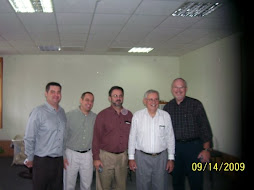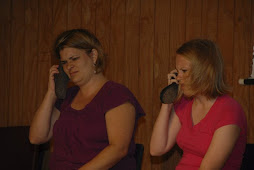 "I stopped living by the core values that I was taught to believe in. I knew my actions were wrong, but I convinced myself that normal rules didn’t apply. I never thought about who I was hurting. Instead, I thought only about myself. I ran straight through the boundaries that a married couple should live by. I thought I could get away with whatever I wanted to. I felt that I had worked hard my entire life and deserved to enjoy all the temptations around me. I felt I was entitled. Thanks to money and fame, I didn’t have to go far to find them.
"I stopped living by the core values that I was taught to believe in. I knew my actions were wrong, but I convinced myself that normal rules didn’t apply. I never thought about who I was hurting. Instead, I thought only about myself. I ran straight through the boundaries that a married couple should live by. I thought I could get away with whatever I wanted to. I felt that I had worked hard my entire life and deserved to enjoy all the temptations around me. I felt I was entitled. Thanks to money and fame, I didn’t have to go far to find them."I was wrong. I was foolish. I don’t get to play by different rules. The same boundaries that apply to everyone apply to me. I brought this shame on myself." ~ from the text of Tiger Woods comments
This was probably the most lengthy and sincere apology I've ever seen by such a huge public figure . And I for one I’m glad Tiger Woods made his public confession today. I think he was sincere. Of course these confessions, unfortunately, are public relations necessities which are carefully calculated. They are born out of the environment created by modern media, particularly the Internet and 24-hour cable news.
But, as often is the case, celebrities do not "say the right words" -- they dribble out half-truths and self-justifications. Tiger did none of that. Hopefully his public confession will make us want to confess our “sin” and make us more inclined to be self reflective to see how our moral choices hurt others.
But the test of a confession is in what follows it—repentance (change)!
Now let's give him some space. Pray for him and his family, and let's leave the man alone. Let him live up to the promises he made this morning, and hope that he can truly recover. After all, it's not just about a man's accomplishments that matter, as much as how he responds to the great challenges of life.
I also can’t help but comment on Tiger’s statement he made concerning the following: “Buddhism teaches that a craving for things outside ourselves causes and unhappy and pointless search for security… Obviously I lost track of what I was taught.”
I believe that Tiger did not stray from his religious teachings but fell prey to Buddhism’s man-centered teachings. Rather than looking for joy from “outside” himself, such as in a grace-based relationship with Christ, Tiger lived a very self-centered, prideful life of self-sufficiency.
I hope that Tiger and his wife find a way to stay married, especially for the sake of the children. But, sadly, Tiger’s adherence to Buddhism will continue to be a hindrance. All Christians should pray for Tiger Woods that he will look “outside” of himself to help that comes from the true and living God and that he will trust in Jesus Christ alone for true forgiveness and redemption.
May God bless you all,
Robert Prater




























